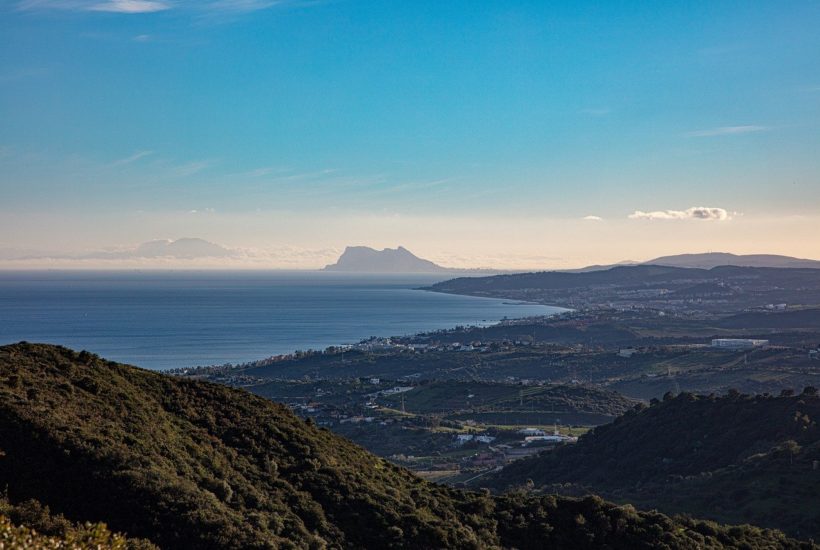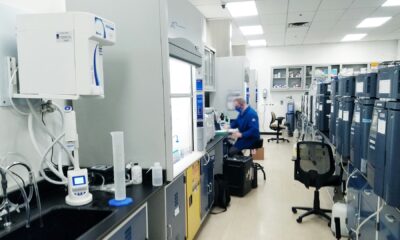Africa
Moroccan-Spanish borders: towards a return to normal?
Preparations are underway to mark the next edition of the Marhaba operation, to facilitate the transit of Moroccans from around the world in a context of health crisis. The prospect of organizing this operation has revived hopes of a probable return to normalcy at the borders. On the Moroccan side, the Moroccan authorities have shown a great sense of organization and mobilization.

The Spanish ports involved in the Marhaba operation are in turmoil. As soon as information about the probable organization of this mega-crossing operation leaked out, the Spanish media reacted immediately. The Iberian press sees there, in fact, a potential lead for the resumption of activity at the borders after a long stoppage that dates back to March 2020. However, nothing is official yet. This is speculation inspired by communication sent by the Directorate of the Spanish Merchant Navy (DMM) to shipping companies operating between the two shores.
Read more about a possible opening of the Moroccan – Spanish borders and find the latest economic news from around the world with the Born2Invest mobile app.
Will there be exceptional measures to accommodate travelers, if the operation Marhaba is indeed opened?
This authority would have requested the fleet plan of shipping companies operating between the two shores, and this, as part of preparations for the next edition of this important movement of travelers. Jubilation is at its peak in the enclaves of Sebta and Melilla. The stakes are indeed high for the presidents because a resumption of maritime connections between Morocco and Spain would mean the reopening of border crossings, a measure eagerly awaited to give a boost to the economy of these cities.
Contacted by Les Inspirations ECO, a spokesman for the Port Authority of Algeciras Bay (APBA), the administration that manages the ports of Algeciras and Tarifa, said that so far, no confirmation of the organization of this operation has yet reached their care. “However, we are making preparations as every year, because we do not want to be caught off guard in case the decision comes at the last moment, said our interlocutor.” Will there be exceptional measures to accommodate travelers, if the operation Marhaba is indeed opened? According to APBA, the measures and health requirements will be dictated by the competent administration. In sum, nothing is to be ruled out, for the moment. It remains that the Andalusian behemoth is experienced in this type of exercise. It should be noted that this port was the only one to accommodate the repatriation operations by sea, since the closure of borders. According to the press sebtie, the port of Algeciras has carried out some redevelopment work to accommodate the flow of vehicles of Moroccans wishing to join their homeland.
For this purpose, the port has released a budget of $826,000 (€695,000) to complete this work.
The improvements concern the conditions of reception of the motorists of this zone of pre-boarding. If this important transit operation is organized, the arrivals could pulverize all records. Indeed, an unprecedented rush this year can be expected, if Morocco finally takes the decision to allow the return of its diaspora. In 2019, it should be remembered, 3 million travelers had used the Strait to travel to the kingdom.
A priori, things should become clearer in early May, during which the joint Moroccan-Spanish commission in charge of this file meets to establish a joint work plan. Moreover, while the operation is a challenge in itself, the constraints related to the health situation would require the implementation of a shock plan to avoid any slippage. According to our reading, only vehicles with a reservation made in advance can access the boarding area. This provision has already been applied, to a lesser extent in the port of Tarifa, for weekends, to avoid crowd movements in this small port facility. In sum, the event is not an insurmountable challenge. The repatriation operations have demonstrated that it is possible to manage this kind of situation.
On the Moroccan side, the Moroccan authorities have shown a great sense of organization and mobilization. However, on arrival, it was disappointing to see that only two customs control counters were operational on the Spanish side, to allow access to 735 passengers. Everything will now depend on the progress of the vaccination campaign in Morocco, which will also depend on the arrival of batches of vaccines and the evolution of the epidemiological situation in Europe.
__
(Featured image by pietpsphotos via Pixabay)
DISCLAIMER: This article was written by a third party contributor and does not reflect the opinion of Born2Invest, its management, staff or its associates. Please review our disclaimer for more information.
This article may include forward-looking statements. These forward-looking statements generally are identified by the words “believe,” “project,” “estimate,” “become,” “plan,” “will,” and similar expressions. These forward-looking statements involve known and unknown risks as well as uncertainties, including those discussed in the following cautionary statements and elsewhere in this article and on this site. Although the Company may believe that its expectations are based on reasonable assumptions, the actual results that the Company may achieve may differ materially from any forward-looking statements, which reflect the opinions of the management of the Company only as of the date hereof. Additionally, please make sure to read these important disclosures.
First published in LesEco.ma, a third-party contributor translated and adapted the article from the original. In case of discrepancy, the original will prevail.
Although we made reasonable efforts to provide accurate translations, some parts may be incorrect. Born2Invest assumes no responsibility for errors, omissions or ambiguities in the translations provided on this website. Any person or entity relying on translated content does so at their own risk. Born2Invest is not responsible for losses caused by such reliance on the accuracy or reliability of translated information. If you wish to report an error or inaccuracy in the translation, we encourage you to contact us.

-

 Business2 weeks ago
Business2 weeks agoTopRanked.io Weekly Affiliate Digest: What’s Hot in Affiliate Marketing [CamSoda Affiliate Program]
-

 Impact Investing4 days ago
Impact Investing4 days agoLoyal Is Working on a Drug to Extend the Life of Dogs
-

 Crowdfunding1 week ago
Crowdfunding1 week ago4fund.com, a Polish Crowdfunding Portal Which Has Raised 275 Million Enters the Italian Market
-

 Fintech1 day ago
Fintech1 day agoKonvex Created the First Universal API that Integrates Different ERPs in Latin America
























